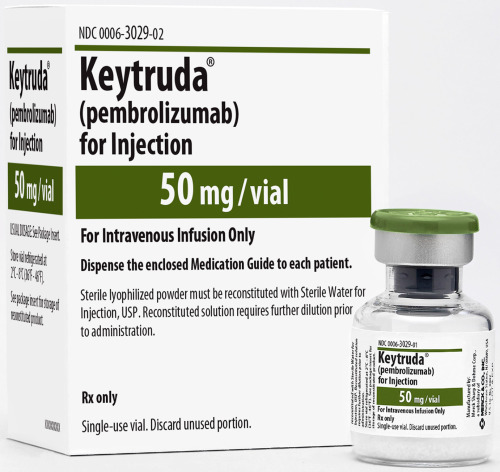FDA approves Keytruda in cervical cancer

Merck & Co’s blockbuster Keytruda has been approved in advanced second line cervical cancer, becoming the first drug in its class approved in the indication.
The FDA approved Keytruda (pembrolizumab) for previously treated patients with recurrent or metastatic cervical cancer, with disease progression on or after chemotherapy.
At least 1% of the tumour cells must express the PD-L1 biomarker, as determined by an FDA-approved test.
The FDA granted a faster accelerated approval based on early data, and Merck will have to provide further trial information at a later date to ensure Keytruda can continue to be used in this indication.
Merck & Co has got its drug approved in the indication ahead of Bristol-Myers Squibb's rival PD-1 blockbuster, Opdivo, which is still in clinical development in cervical cancer.
Roy Baynes, chief medical officer at Merck Research Laboratories, said: “Keytruda is now the first anti-PD-1 therapy approved for the treatment of advanced cervical cancer, providing an important new second-line option for certain patients with this disease.”
“This approval also marks the first indication for Keytruda in gynaecologic cancer and reflects our ongoing commitment to bring forward innovative treatment options across a broad range of cancers, including cancer that disproportionately affect women.”
Bradley Monk, professor of obstetrics and gynaecology at University of Arizona’s College of Medicine and Creighton University School of Medicine, said: “Even with the many advances observed across gynaecologic cancers, new treatment options have been lacking for previously treated patients with advanced cervical cancer.”
“The approval of Keytruda in this indication is important news – and as an oncologist, it is exciting to see a much-needed option made available to these patients.”
Earlier this week England’s cost-effectiveness body NICE recommended in draft guidance that Keytruda should receive regular NHS funding in first-line lung cancer.
NICE decided to move Keytruda off interim reimbursement arrangements on the Cancer Drugs Fund, following new data showing the drug could improve survival by 16 months compared with standard chemotherapy, in patients whose tumours express PD-L1.
And earlier this month the first clinical trial testing the drug in men with advanced prostate cancer showed a strong response in a small subset of patients thought to have DNA repair deficient tumours.













